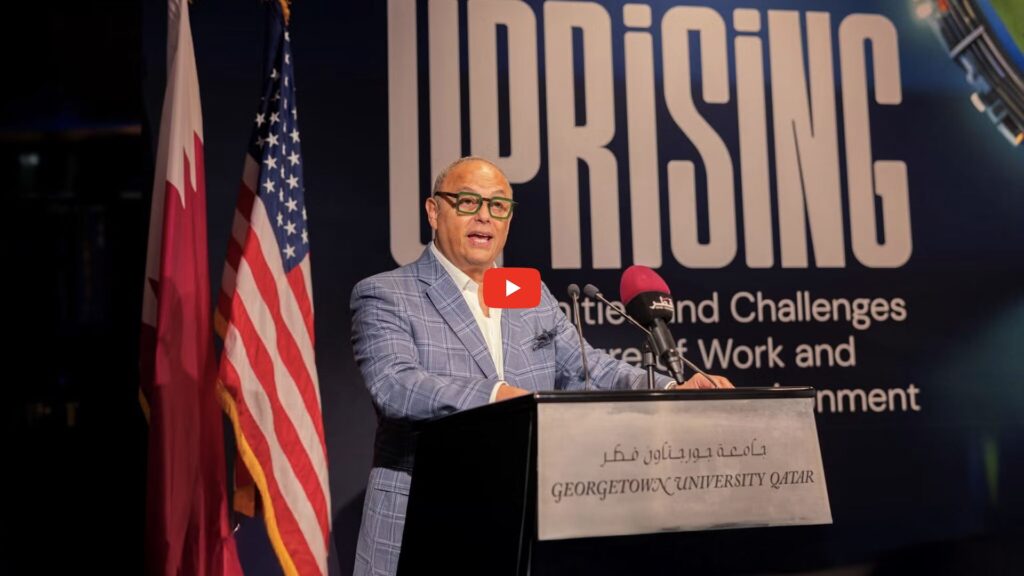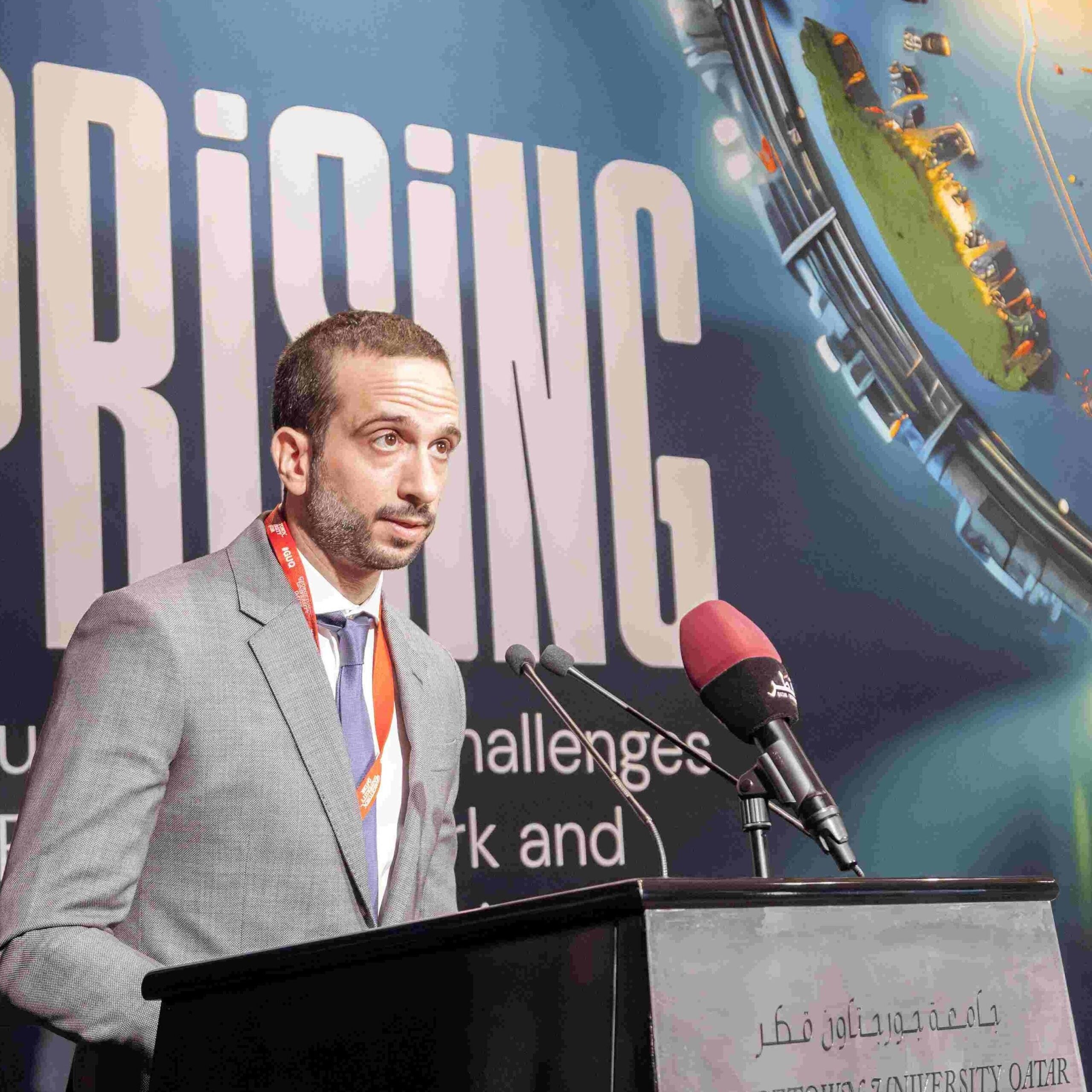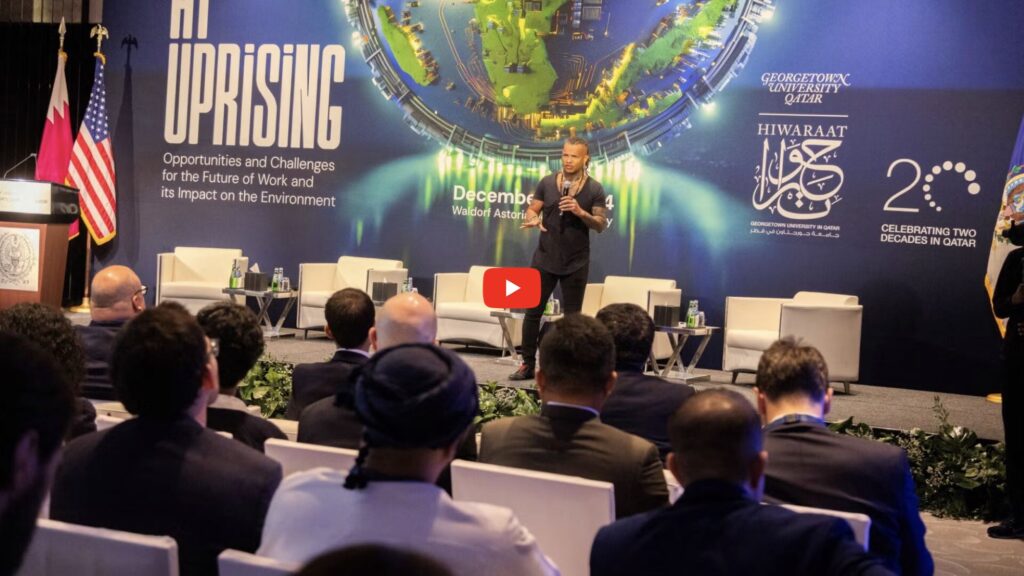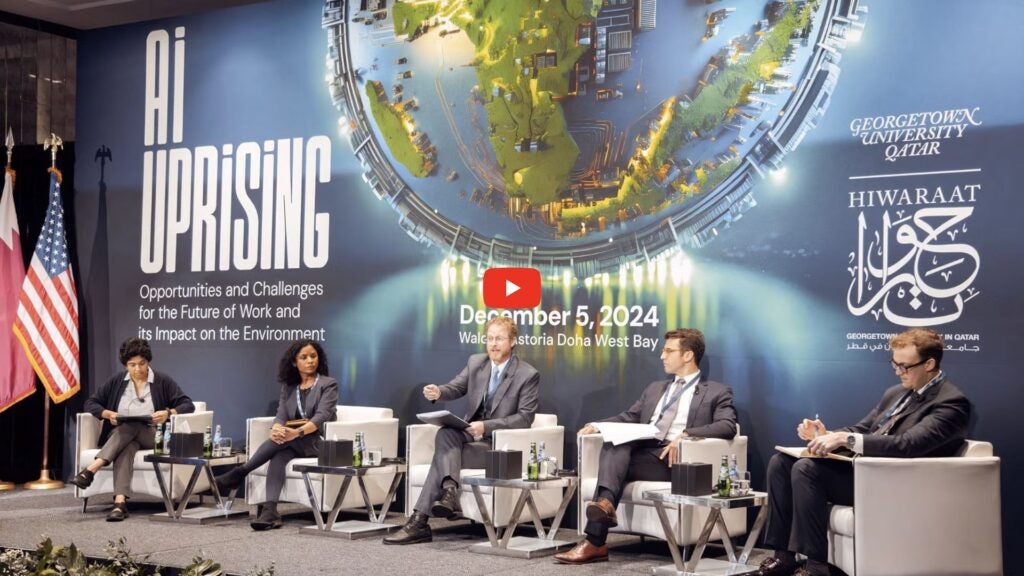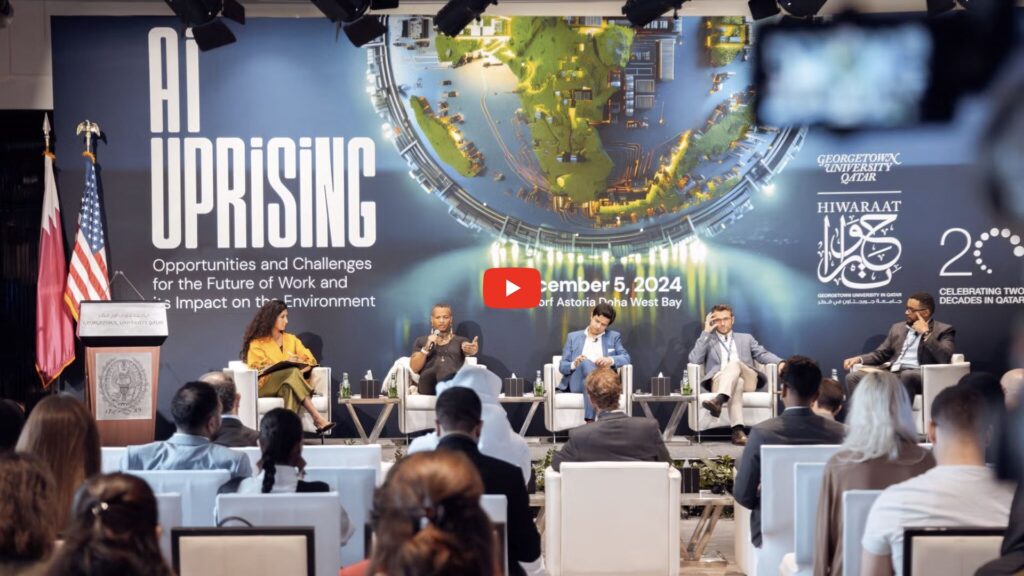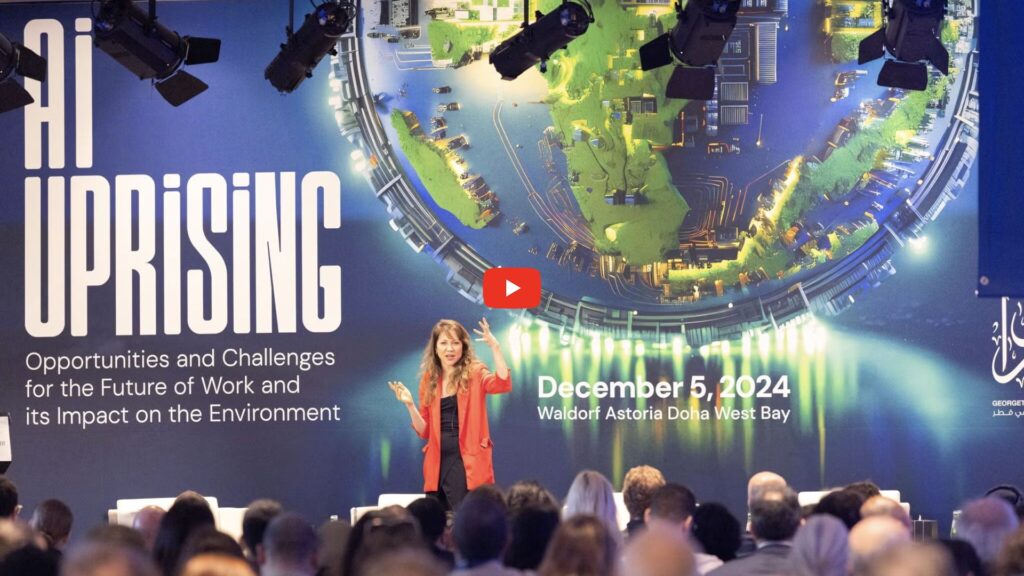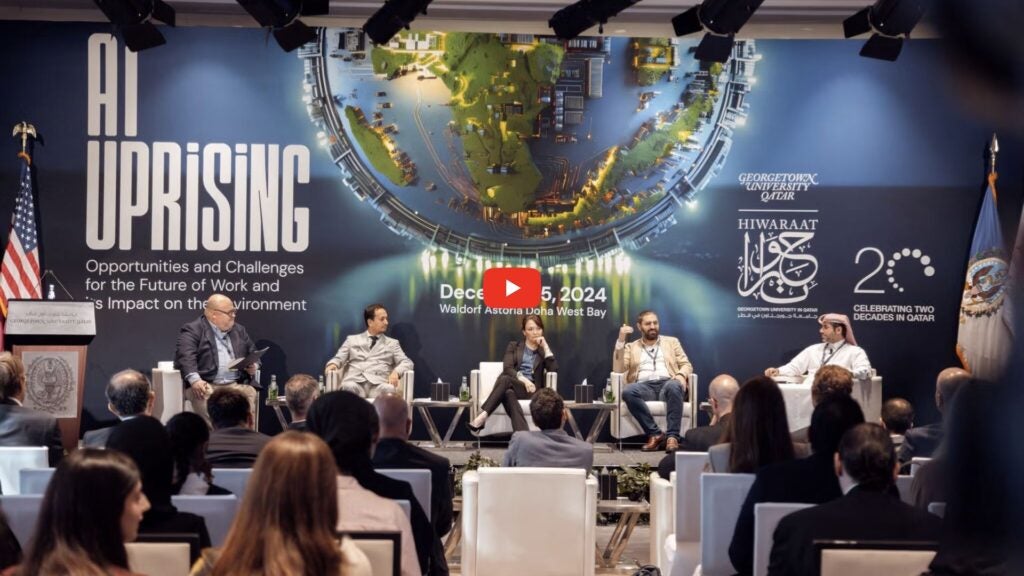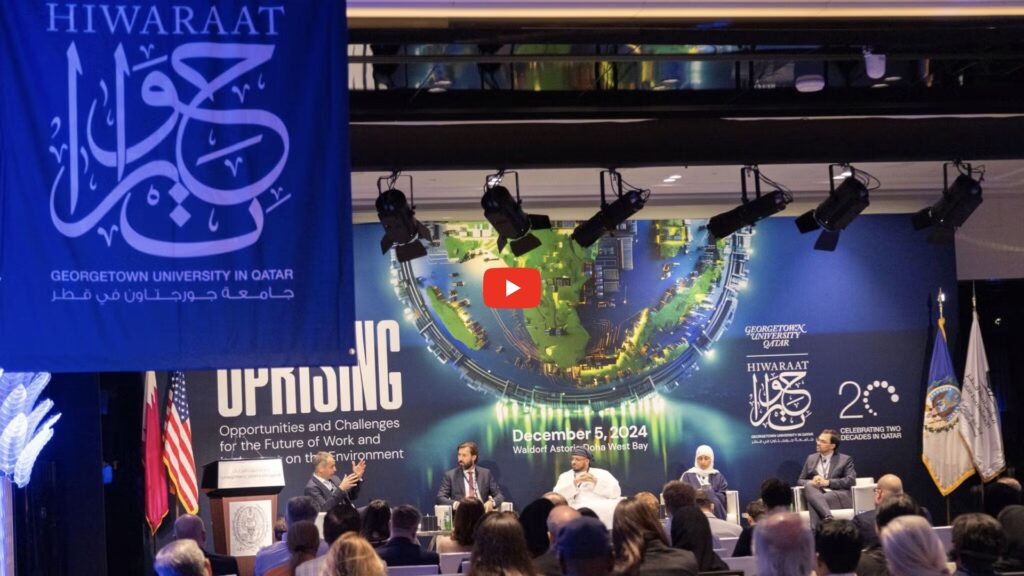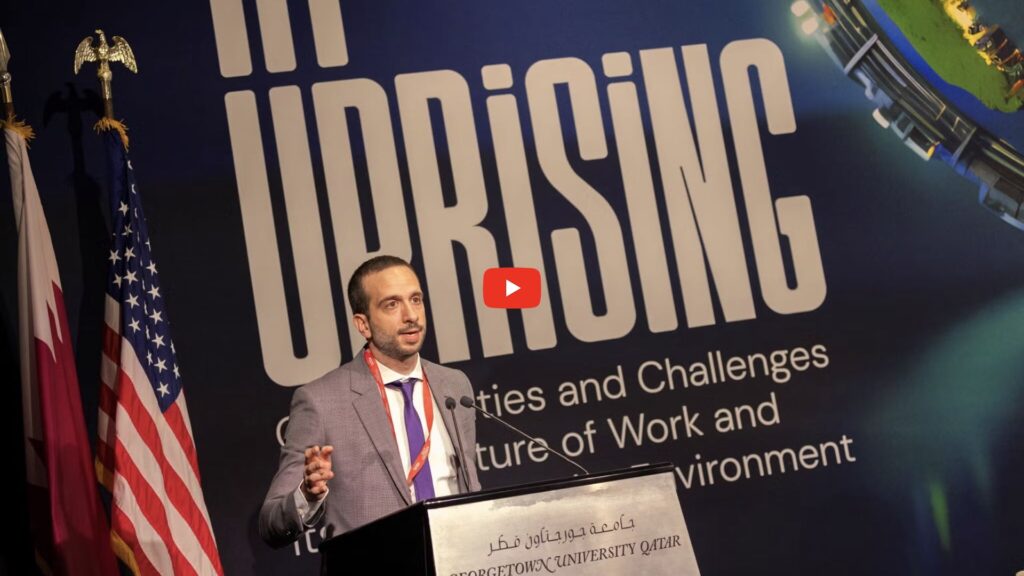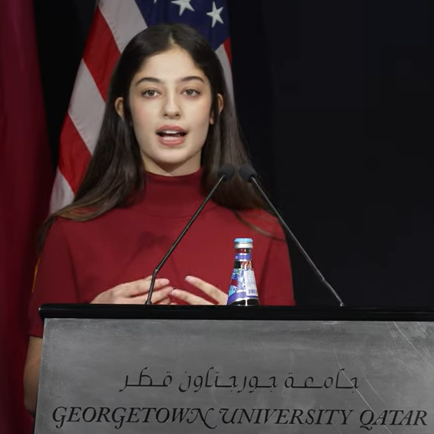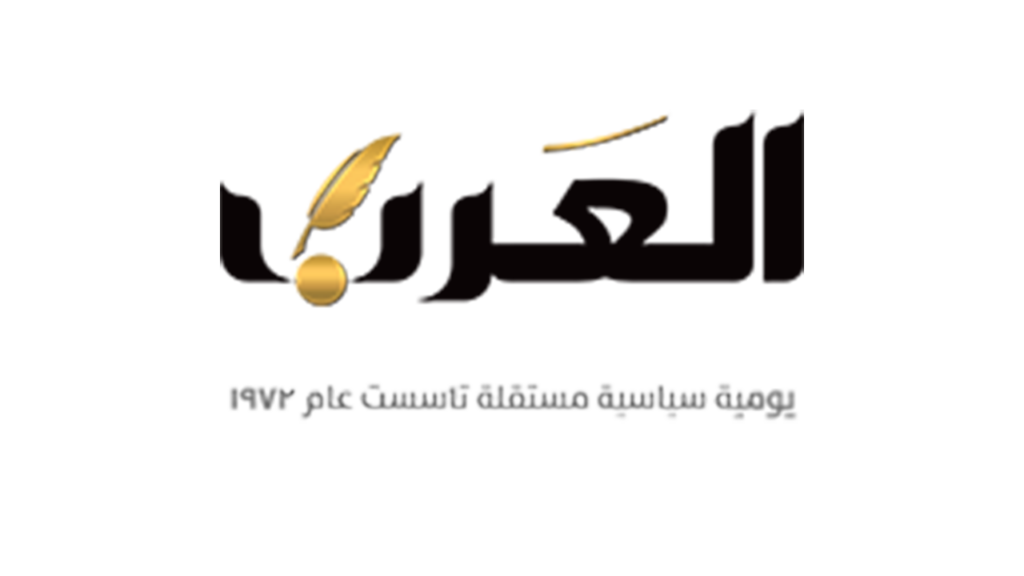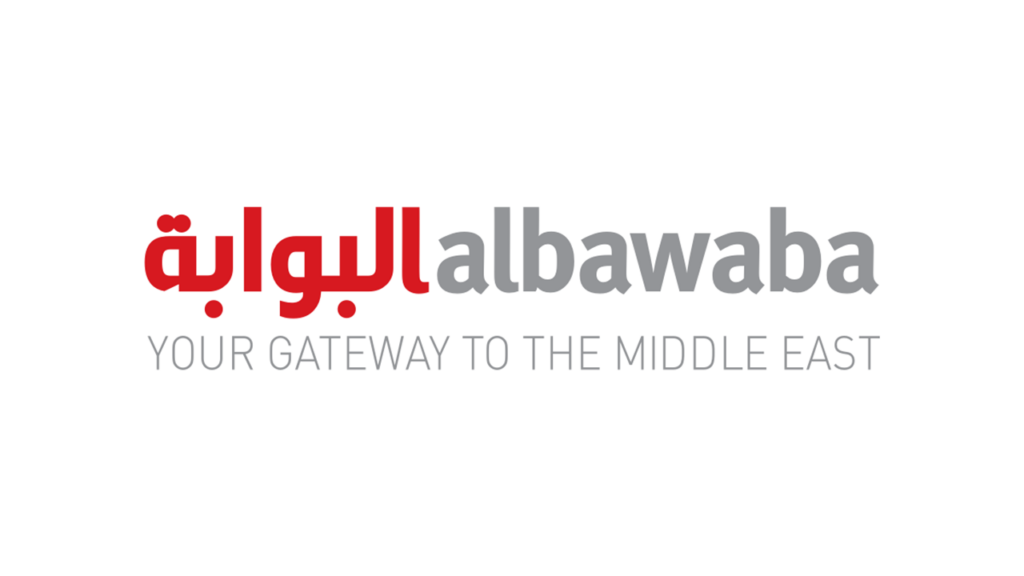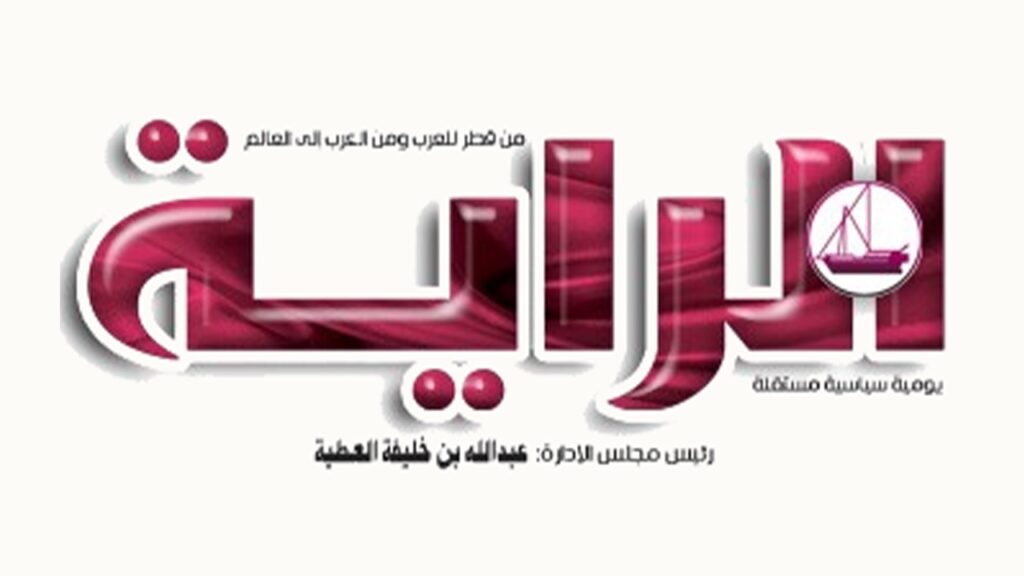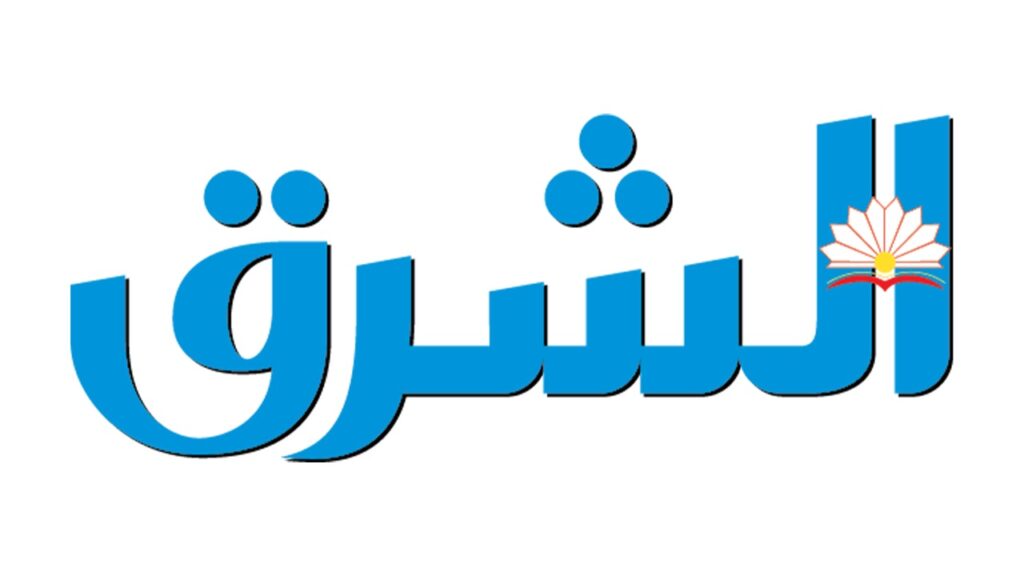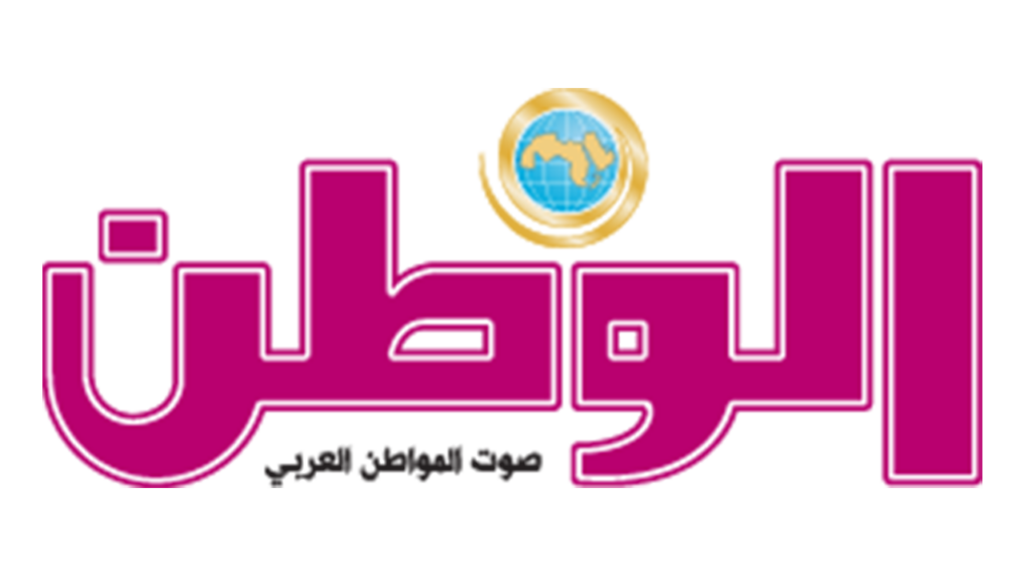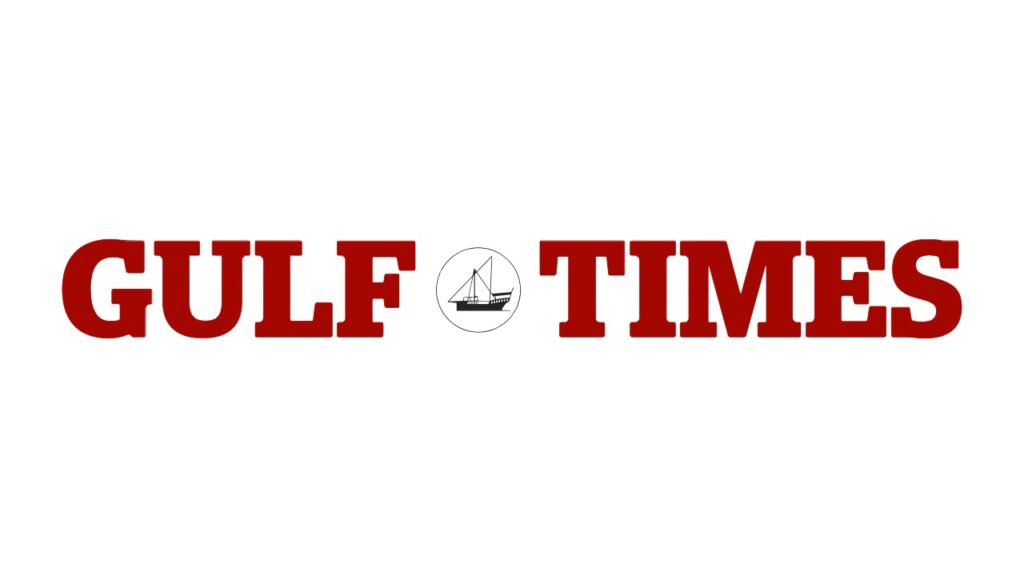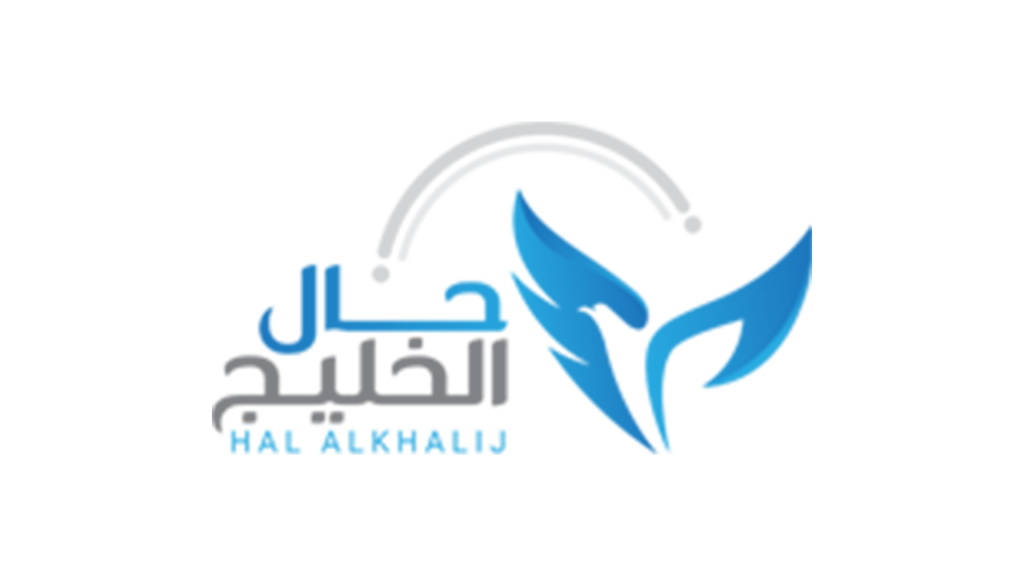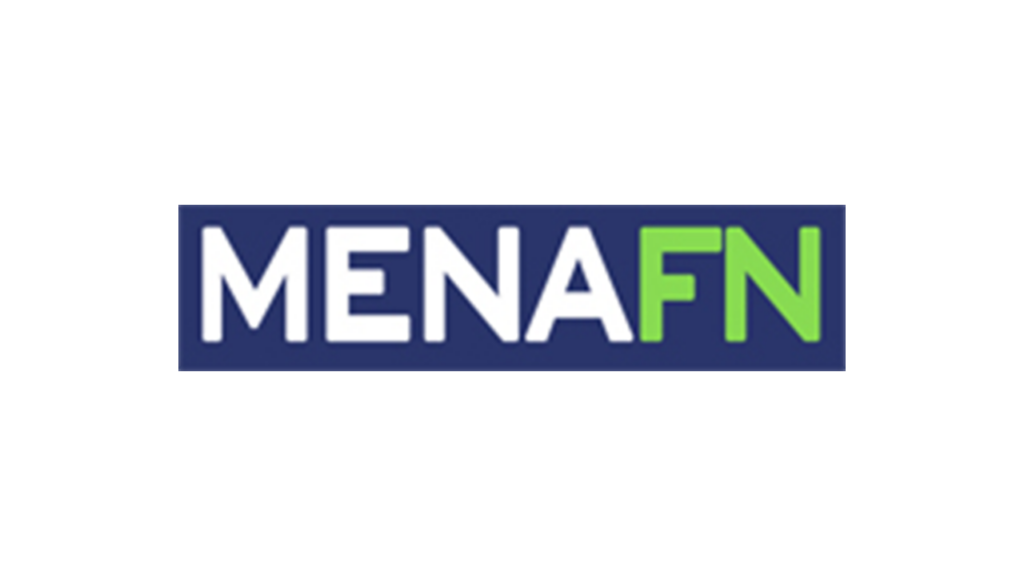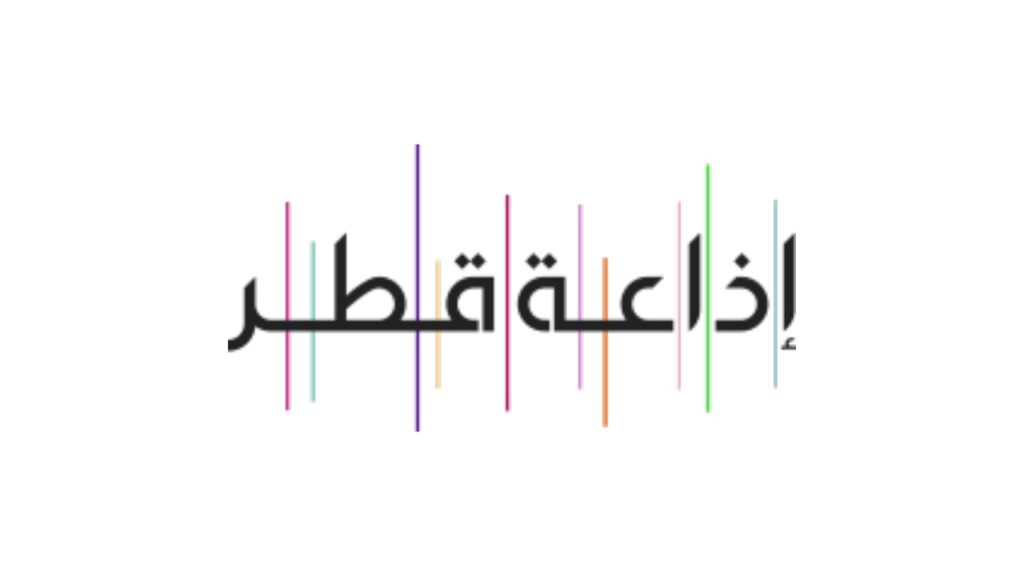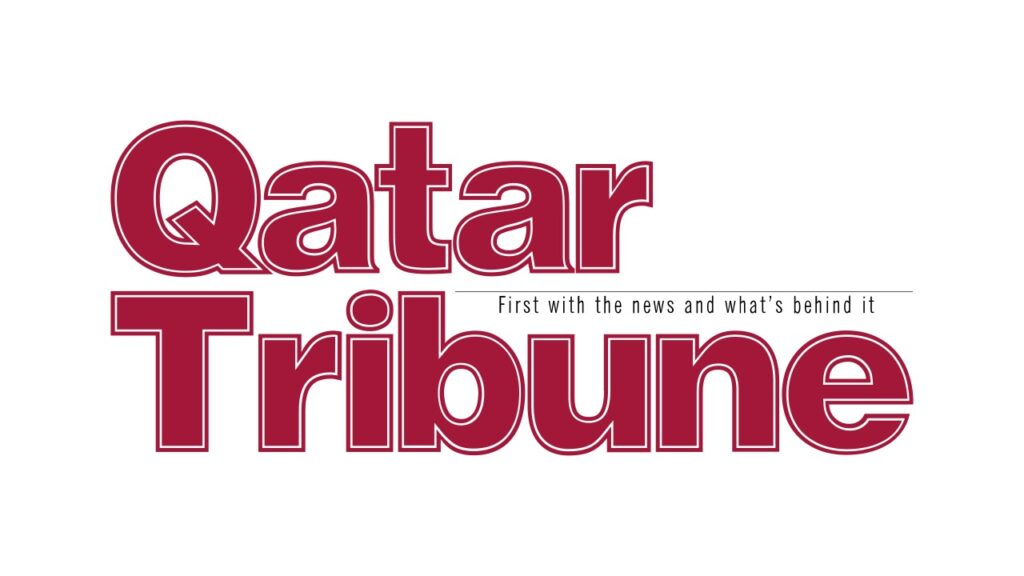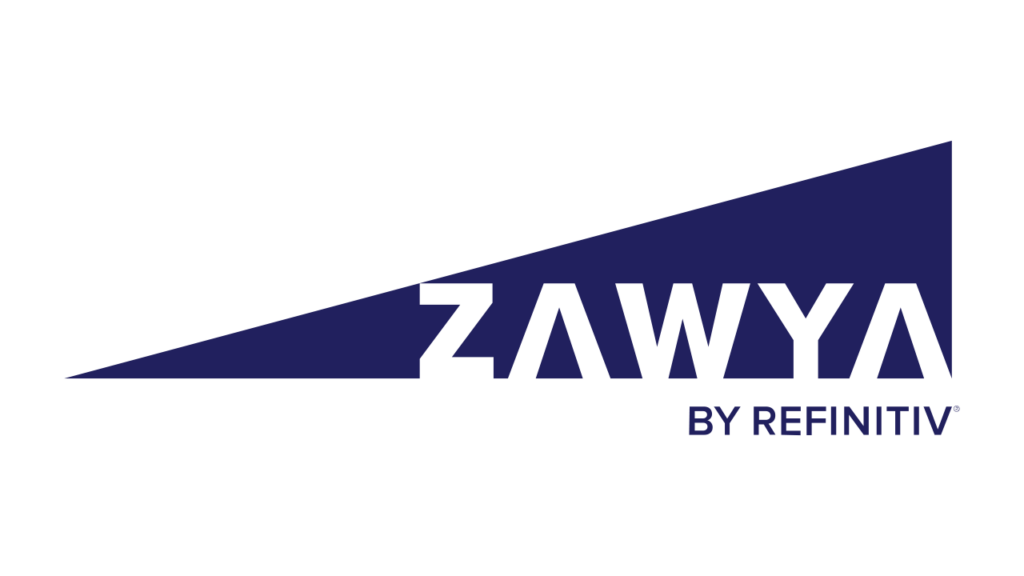Conference Highlights – AI Uprising
HIWARAAT CONFERENCE SERIES
A.I. Uprising: Opportunities and Challenges for the Future of Work and Its Impact on the Environment
December 5, 2024
Convened by members of the Georgetown University in Qatar faculty and staff, the ninth conference in the Hiwaraat series hosted an extraordinary range of perspectives from around the world representing academics, CEOs, policymakers, and radical thinkers, to examine how to direct smart technology to act with conscience, and explore ways of harnessing AI’s potential without leaving humanity behind, with an emphasis on Africa and Asia.
- 22 Speakers
- 387 Attendees
Welcome and Opening Remarks
“Within Georgetown’s Jesuit tradition lies our age-old belief that work is a calling, and stewardship of the environment a shared responsibility–principles that shape today’s conference. AI has forced us to reconsider who we are…standing at the threshold of either elevating humanity to heights we have never imagined, or unraveling the very threads that bind us.”
—Safwan Masri, Dean, Georgetown University in Qatar
Keynote Address by Dr. Moriba Jah
Dr. Moriba Jah is an Associate Professor of Aerospace Engineering and Engineering Mechanics at the University of Texas at Austin, and an internationally recognized, award-winning scientist, educator and MacArthur fellow acknowledged for his work in space environmentalism. With his extensive expertise in space situational awareness and astrodynamics, Dr. Jah has dedicated his career to addressing the environmental challenges posed by human activities beyond Earth.
“Our collective actions and decisions have put us on a path of self-extinction… but there is hope…We need to see machines as collaborators, we cannot achieve sustainability without them..Power resides in our choices.”
—Dr. Moriba Jah
The Ethics of AI in Our Geopolitical Context
In this discussion moderated by Dr. Anjana Jacob, Assistant Teaching Professor of Philosophy, GU-Q, panelists discussed the profound ethical challenges posed by AI, from increased geopolitical and economic stratification to the near-term exacerbation of climate harm, and how ethical regulation of AI can secure the moral goal of a genuinely just energy transformation and a jobs revolution.
“The information ecosystem today is getting contaminated by AI-assisted technology…posing significant challenges to democracies in different areas of the world.”
— Dr. Sahana Udupa
Panelists:
Dr. James Olsen, Environmental Ethicist, Georgetown University in Qatar
Dr. Georgios Dimitropoulos, Associate Professor of Law, Hamad Bin Khalifa University
Dr. Sahana Udupa, Professor of Media Anthropology, Ludwig-Maximilians-Universität
Owen J. Daniels, Associate Director of Analysis at the Center for Security and Emerging Technology, Georgetown University
Promoting Sustainable Development
In this discussion moderated by Dr. Raha Hakimdavar, Senior Advisor to the Deans of GU-Q and Earth Commons, Georgetown University, panelists examined how AI can contribute to sustainable development.
“People are being sold this idea, that success has to look like Western society… with AI, and how the technology is utilized in places like Sub-Saharan Africa, it has to be utilized in the context of the culture itself, and to take in to account that cultural context…indigenous people…know how to innovate. What they have trouble doing is having to forcefully accept a way of life of a completely different culture, and measure their success based on that.”
—Dr. Moriba Jah
Keynote Address by Dr. Merrit Moore
Dr. Merritt Moore is a Quantum Physicist, Ballerina and Distinguished Artist in Residence, NYU Abu Dhabi. Holding a PhD in Atomic and Laser Physics from the University of Oxford, she has also performed as a professional ballet dancer with the English National Ballet, Norwegian National Ballet, Zurich Ballet, and continues to perform with Boston Ballet. During the pandemic, Moore brought her passions together to dance with robots she programmed. She has now been invited to perform with robots at the World Economic Forum in Davos, Forbes Women’s Summit in Abu Dhabi, WORLD.MINDS in Belgrade, Switzerland, Germany, Mexico, France, Romania, USA and more. This led to collaborations with Louis Vuitton and features in TIME, Financial Times (FT), Vogue, and BBC.
“We need to be aware of the limiting beliefs that prevent us from reaching our full potential… technology can actually be a catalyst that helps us see outside of the box and to become even more creative. And then with drive and beliefs and hard work there’s so much more that we can overcome…I think it’s very much a tool that allows us to see further.”
—Dr. Merritt Moore
Innovation to Improve Humanity
This panel, moderated by Douglas Little, Senior Associate Vice President and Chief Information Officer, Georgetown University, discussed the potential of AI and other technologies to improve humanity’s condition, as well as facilitate and hasten other innovations as a means toward global flourishing.
Panelists:
Hakan Ozdemir, CEO of Siemens Qatar and Siemens Middle East – Smart Infrastructure
Rika Nakazawa, Chief Commercial Innovation, NTT Group
Dr. Mohammad Hammoud, Associate Professor of Computer Science, Carnegie Mellon University in Qatar
Mohammed Al-Hardan, Head of the Technology, Media & Telecommunications Department at QIA
AI and Labor Market Transformation
In the concluding panel discussion, moderated by Dr. Alexis Antoniades, Professor of Economics, Georgetown University in Qatar, economists and labor experts from the region addressed which jobs AI is replacing, which new jobs are arising, and the potential of AI to reduce drudgery in work, and help policymakers to design economies to better benefit workers and citizens.
Panelists:
Dr. Pawel Gmyrek, Senior Researcher, International Labor Organization
Salim Al-Barami, Strategic Planning and Digital Transformation Advisor, Ministry of Labour, Qatar
Dr. Hoda Alkhzaimi, Strategic Advisor, and Associate Vice Provost of Research Translation, Innovation and Entrepreneurship, NYU Abu Dhabi
Dr. Emmanouil Chatzikonstantinou, Assistant Professor of International Economics, Georgetown University in Qatar
“There are more than 25 simultaneous technological breakthroughs that are intertwining together to change the face of economies throughout the globe, but we are focusing only on AI because of the current economic cycle…while we are only focusing on AI there are new job markets in different regions of the world in different emerging markets that are being created. Over 200 technologies are being created…so I think when we analyze our current competitive advantage from building generative AI, we should look deeper.”
—Dr. Hoda Alkhzaimi
Closing Remarks
“Qatar has the historical opportunity to develop and carefully select investment opportunities that endure just transitions toward environmental sustainability, implement ethical applications of artificial intelligence, and promote workers’ dignity. We hope that the conversations that we have had today serve as a starting point in this process, and we are looking forward to further contribute to this as an academic institution.”
—Dr. Santiago Garcia-Couto
Student Speakers
The panels were introduced by student speakers who offered their perspectives on the impact of technological advancements on their future, sharing their concerns and hopes.
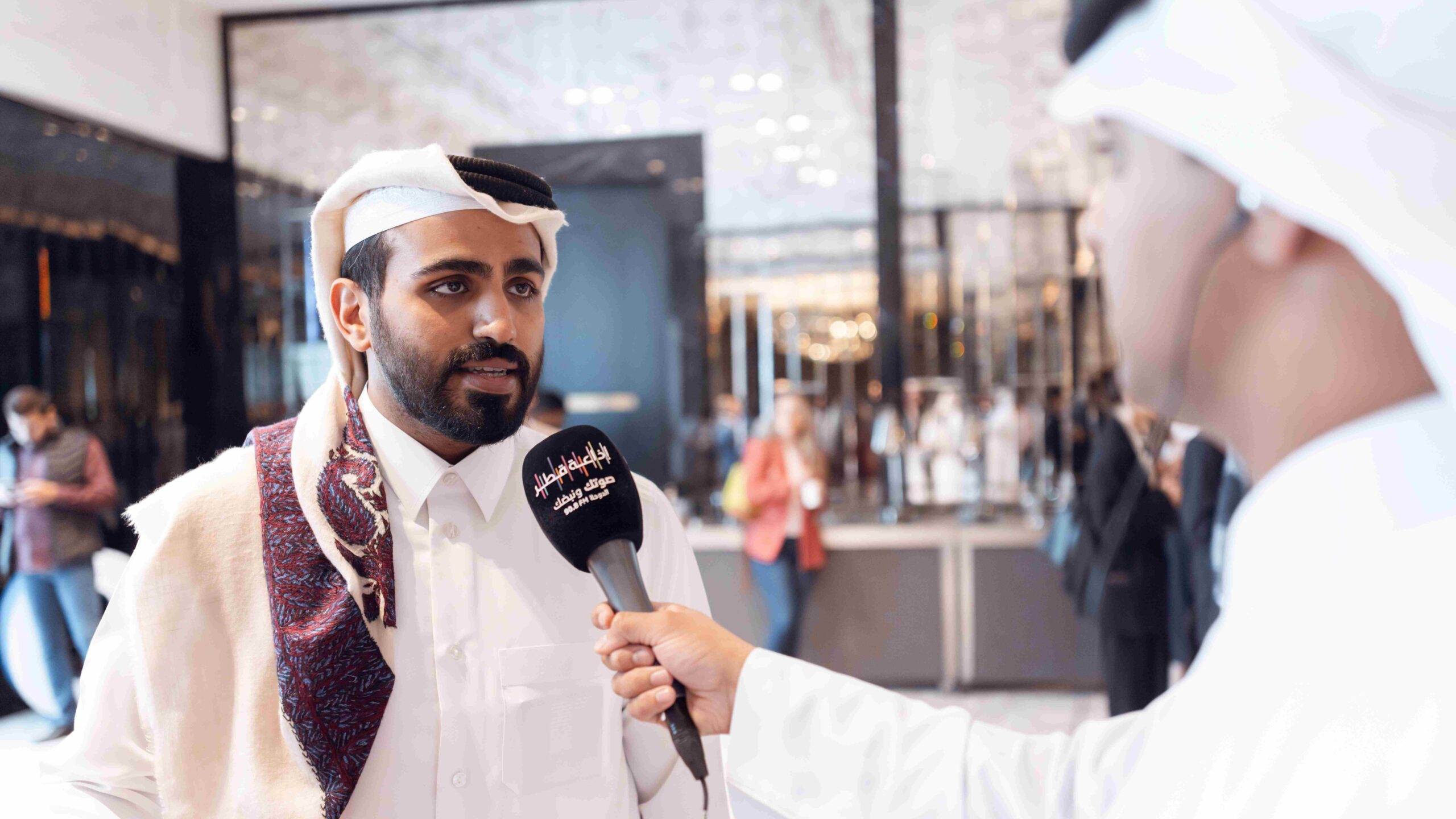
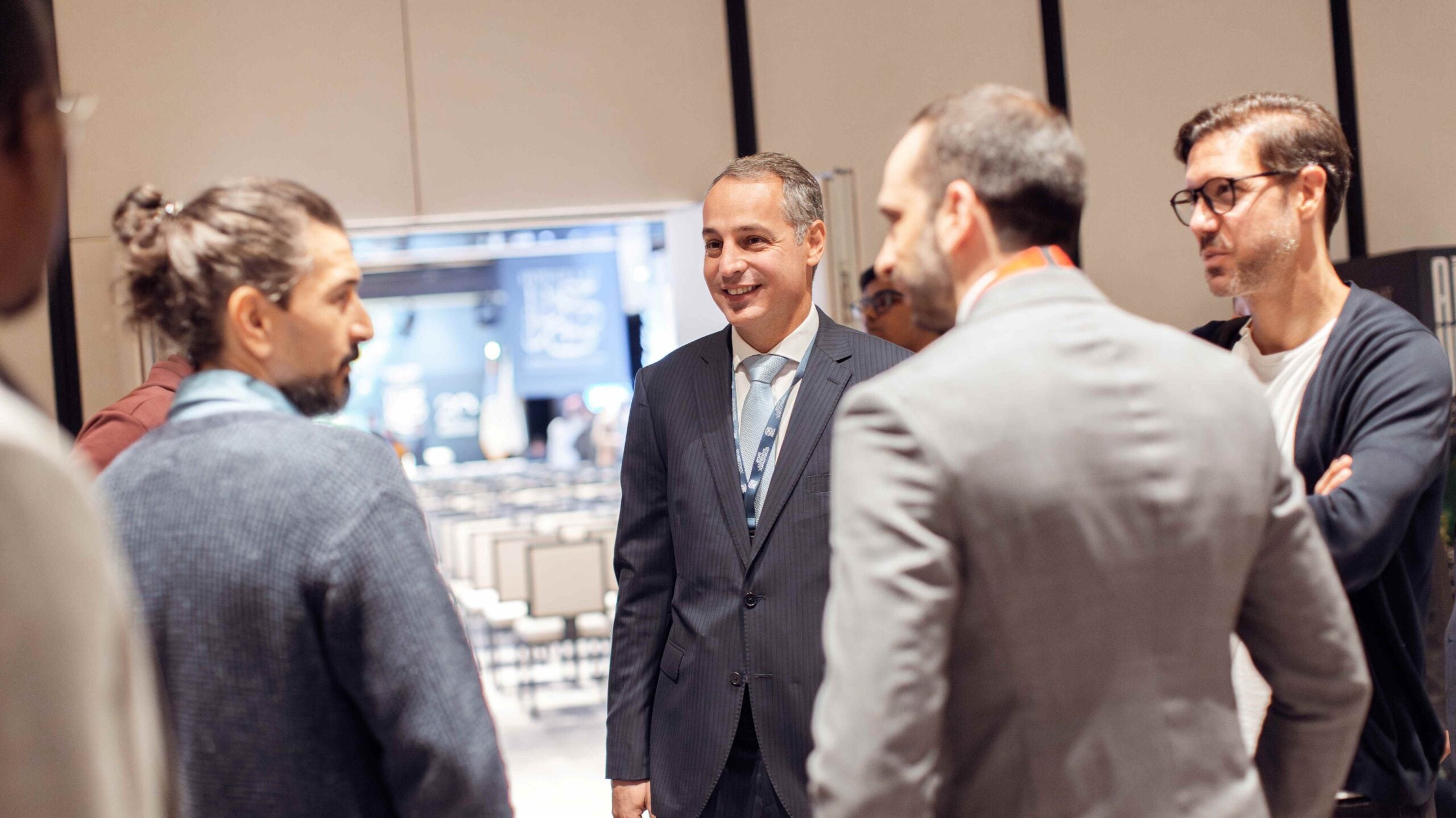
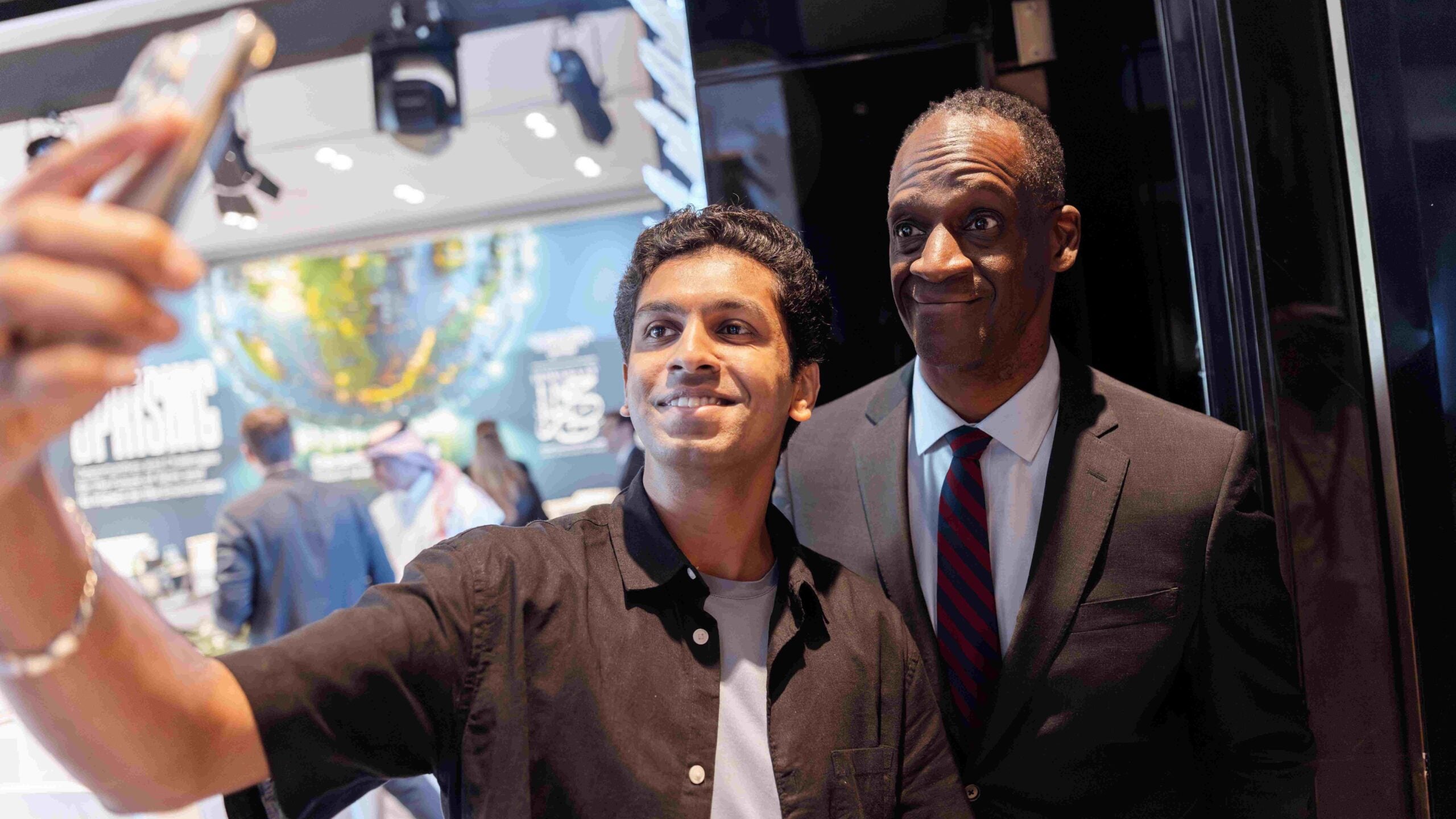
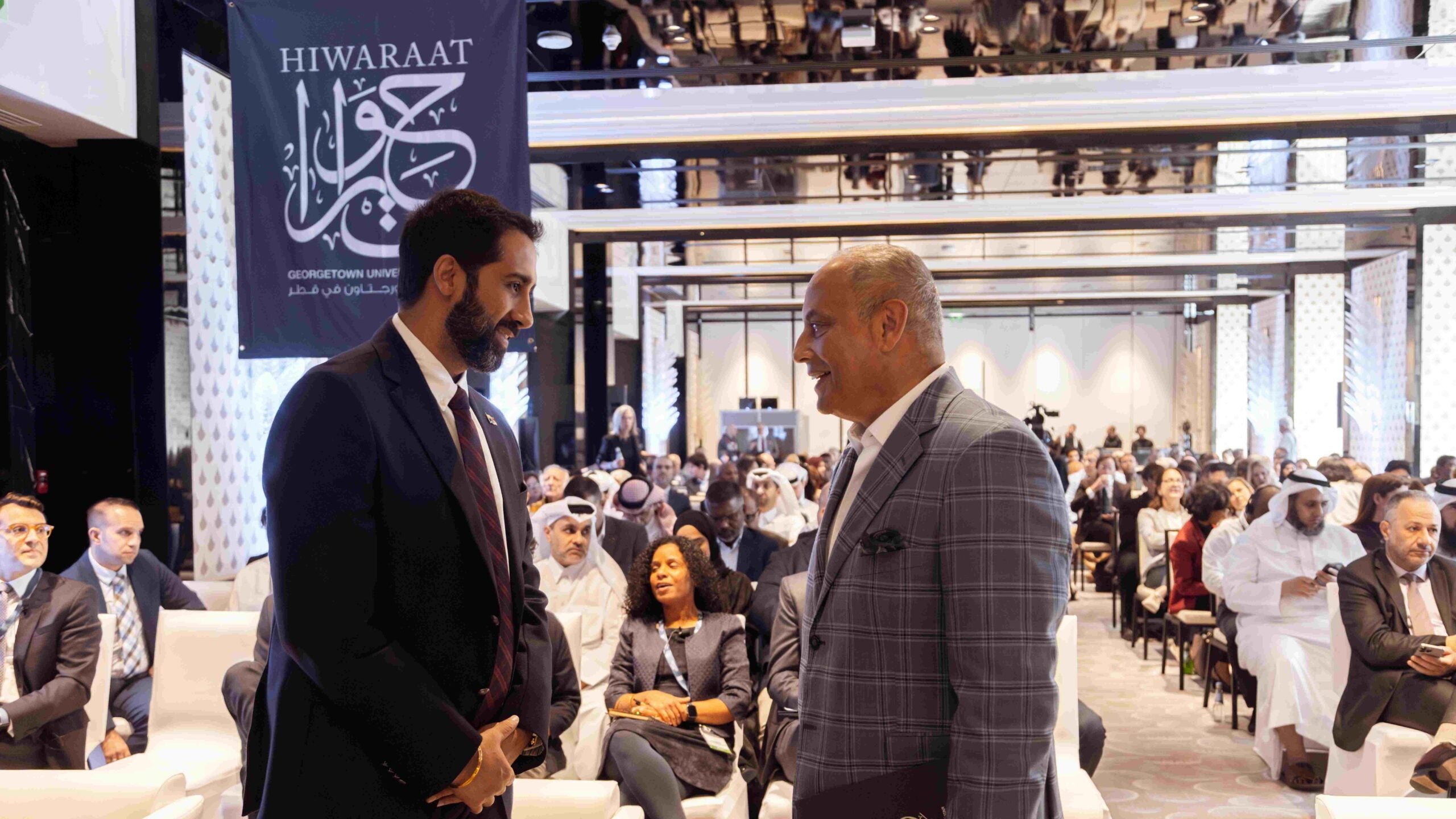

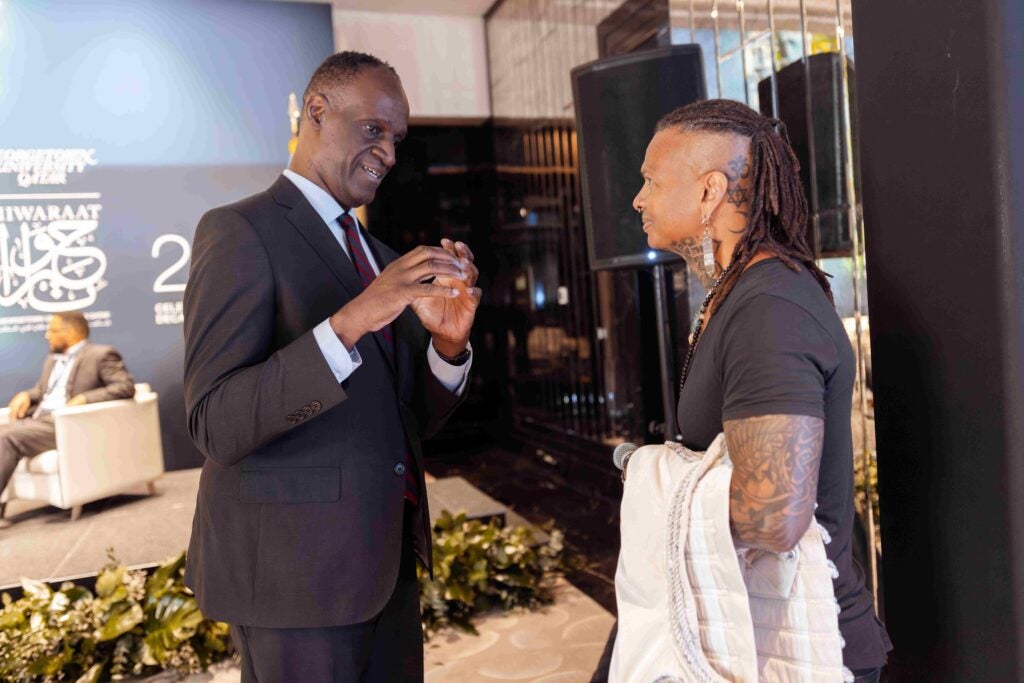
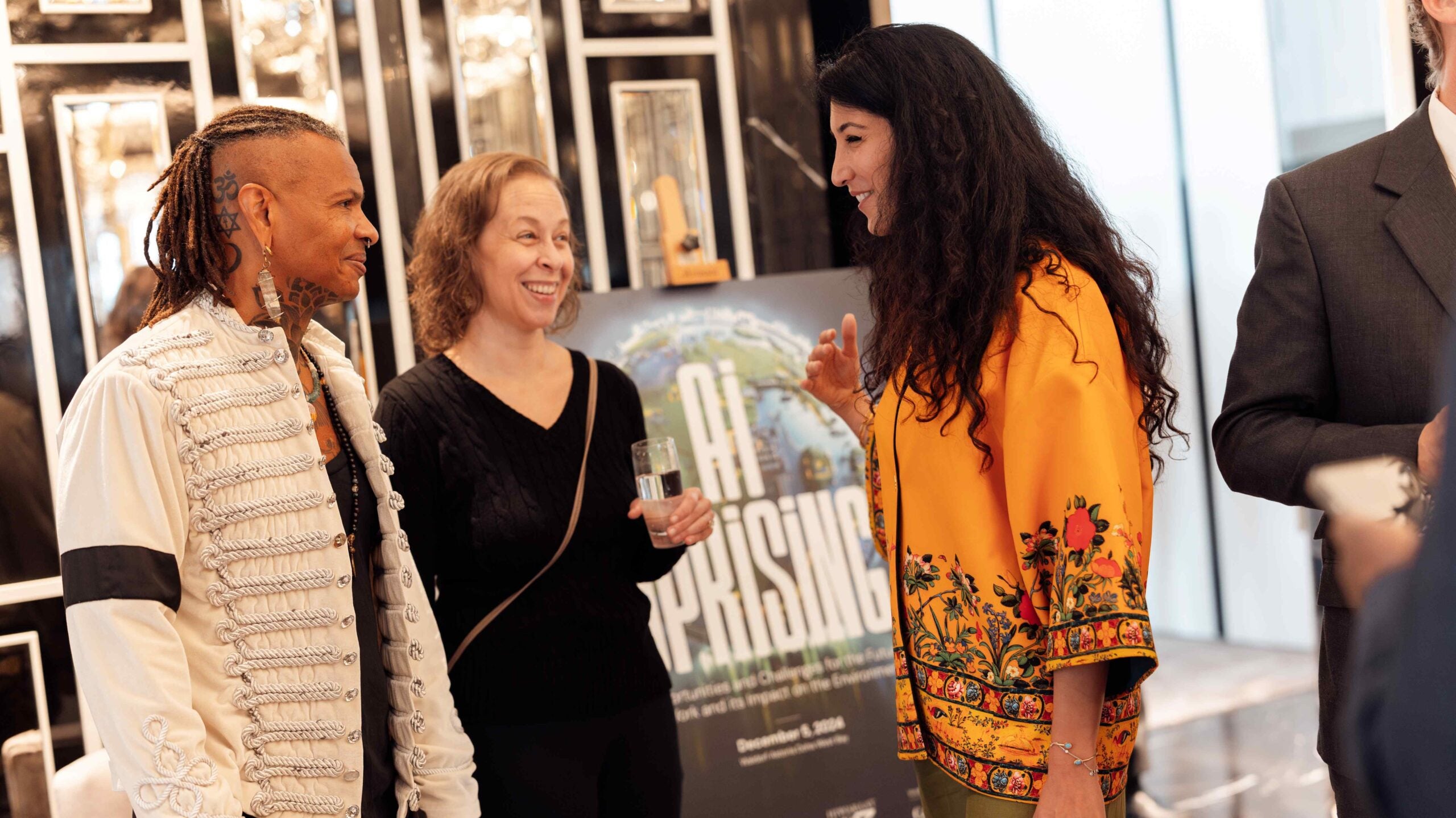
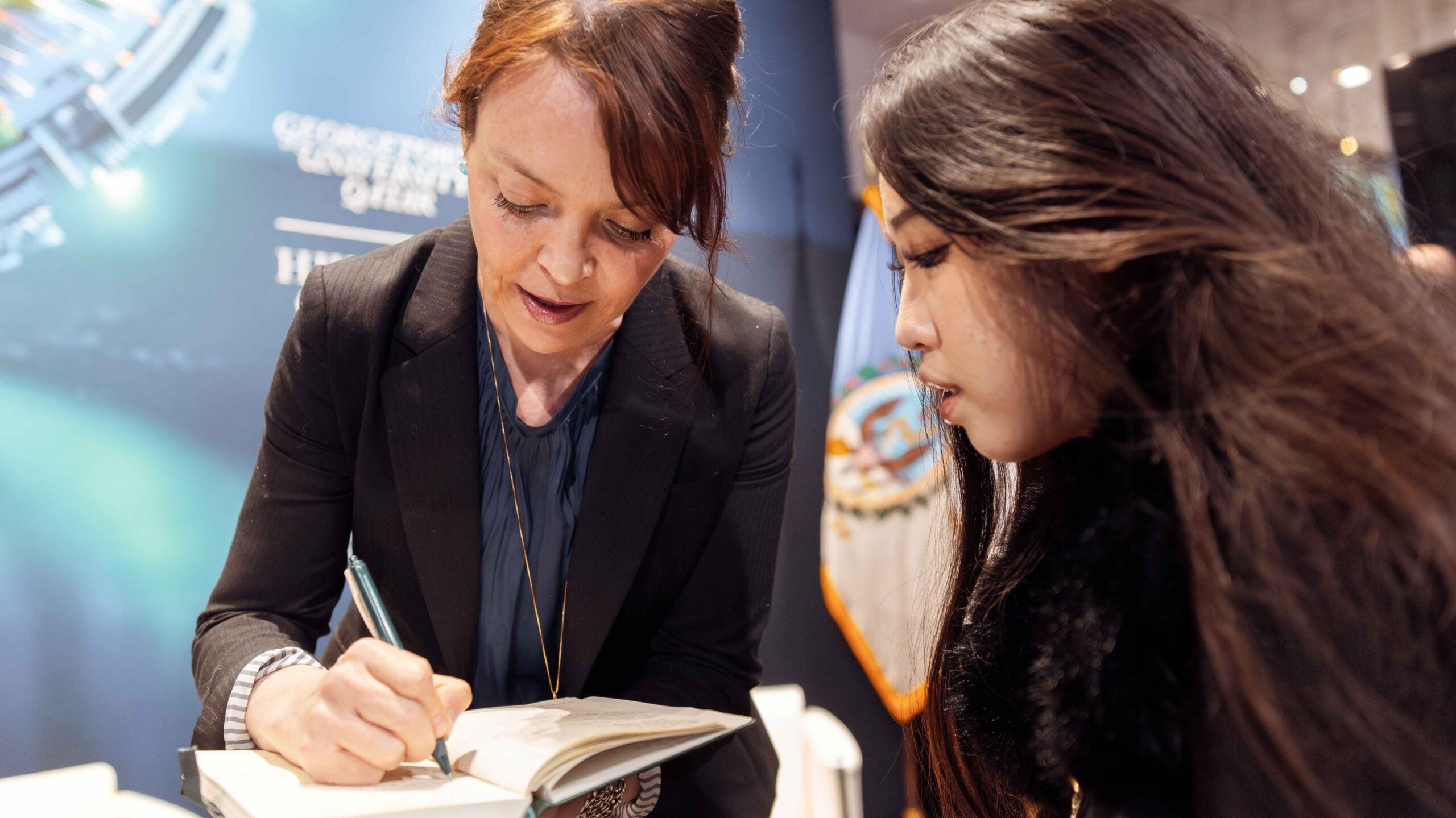

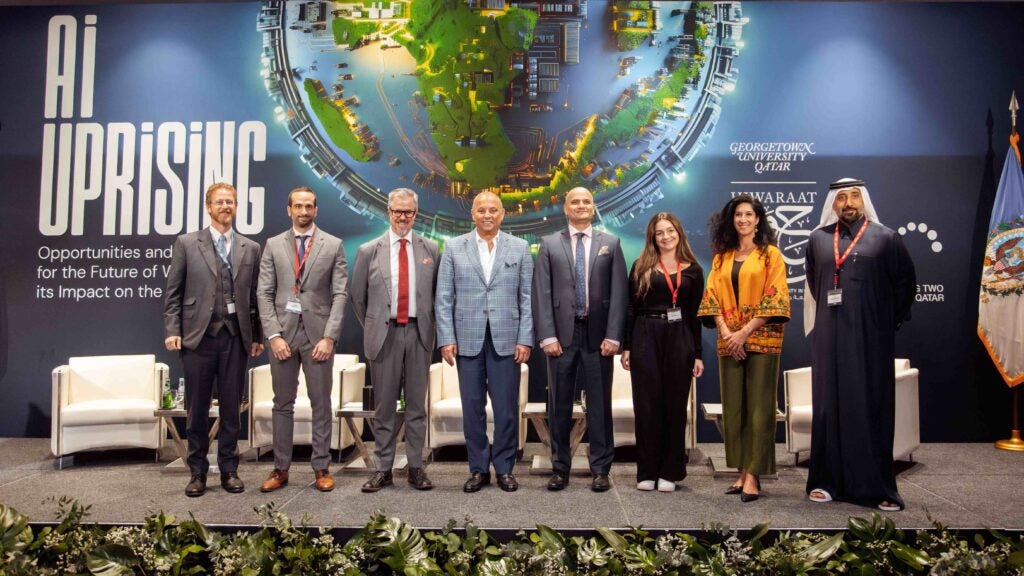
Day 2: Stakeholder Session
On Friday, December 6, 2024, policymakers, scholars, and changemakers convened for a day of brainstorming solutions to regional challenges posed by AI.
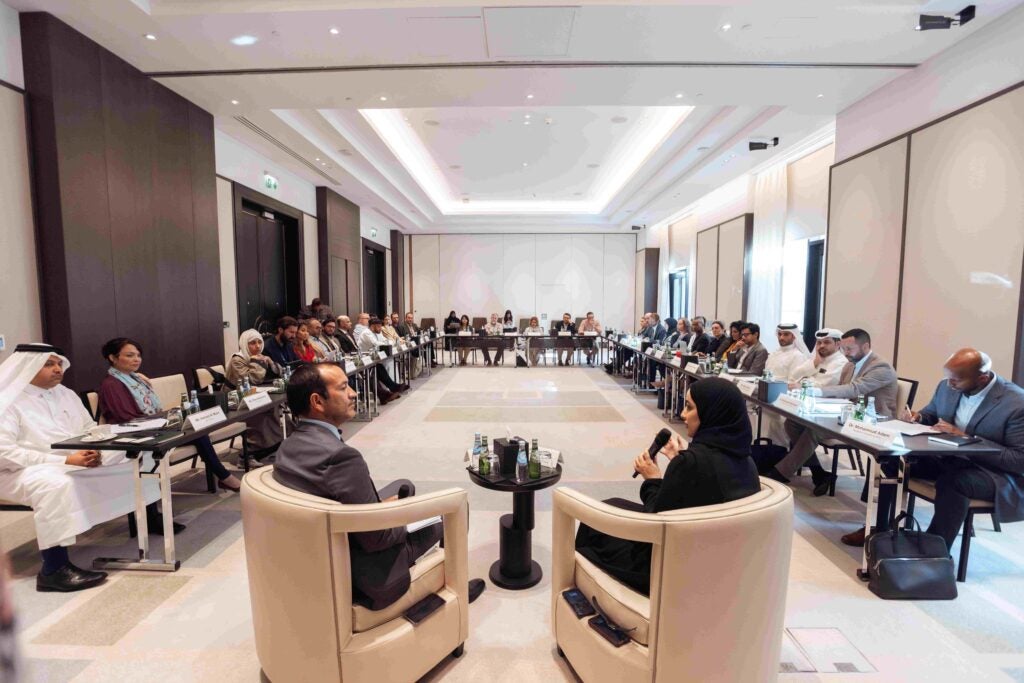
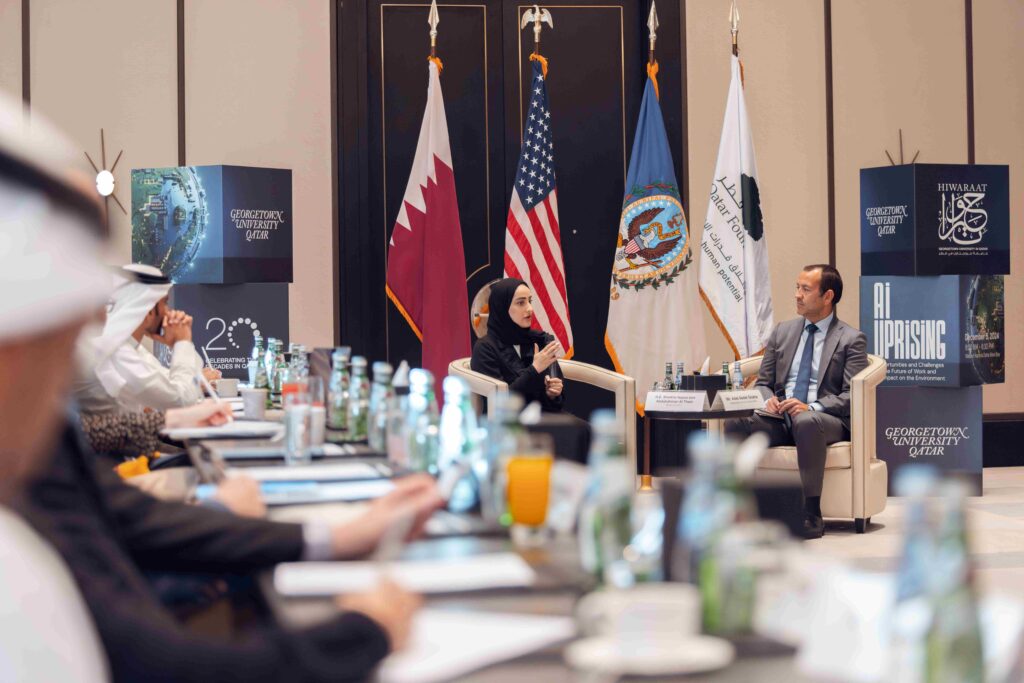
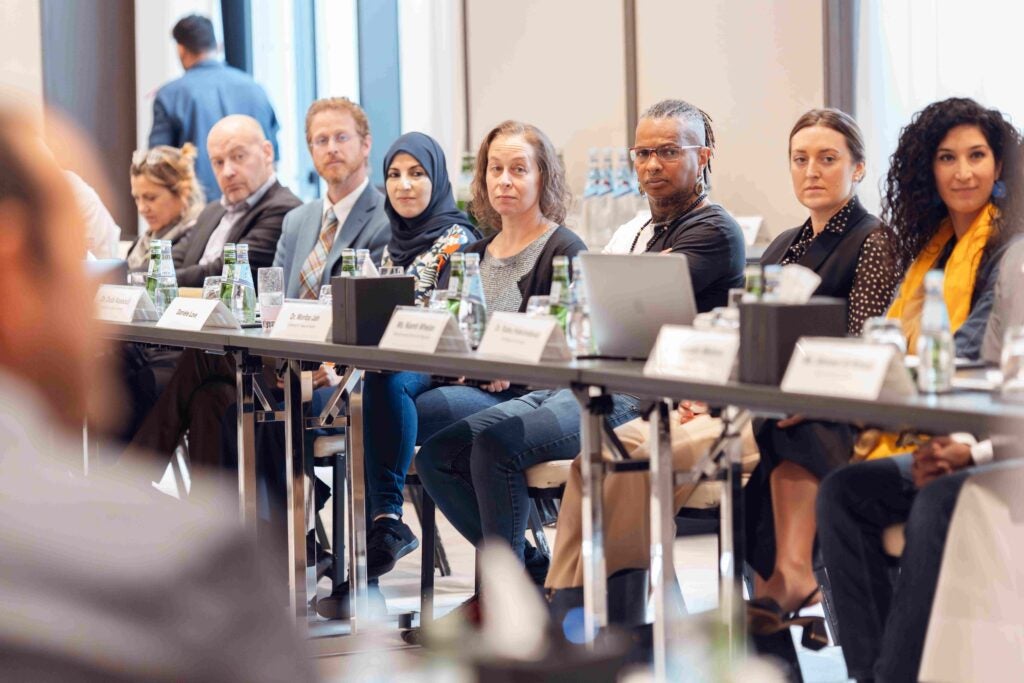
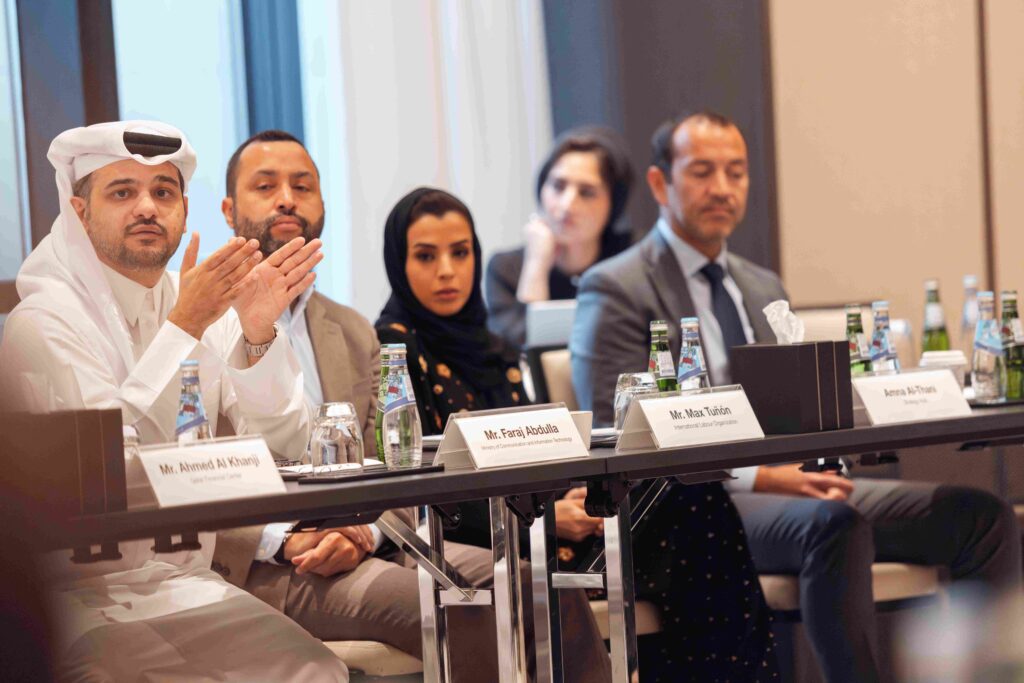
Conference Convenors
Dr. Santiago García-Couto, Dr. Raha Hakimdavar, Dr. James Olsen, Dr. Mohamoud Adam, Faruk Zeeshan, and Robert Laws organized and convened the conference.
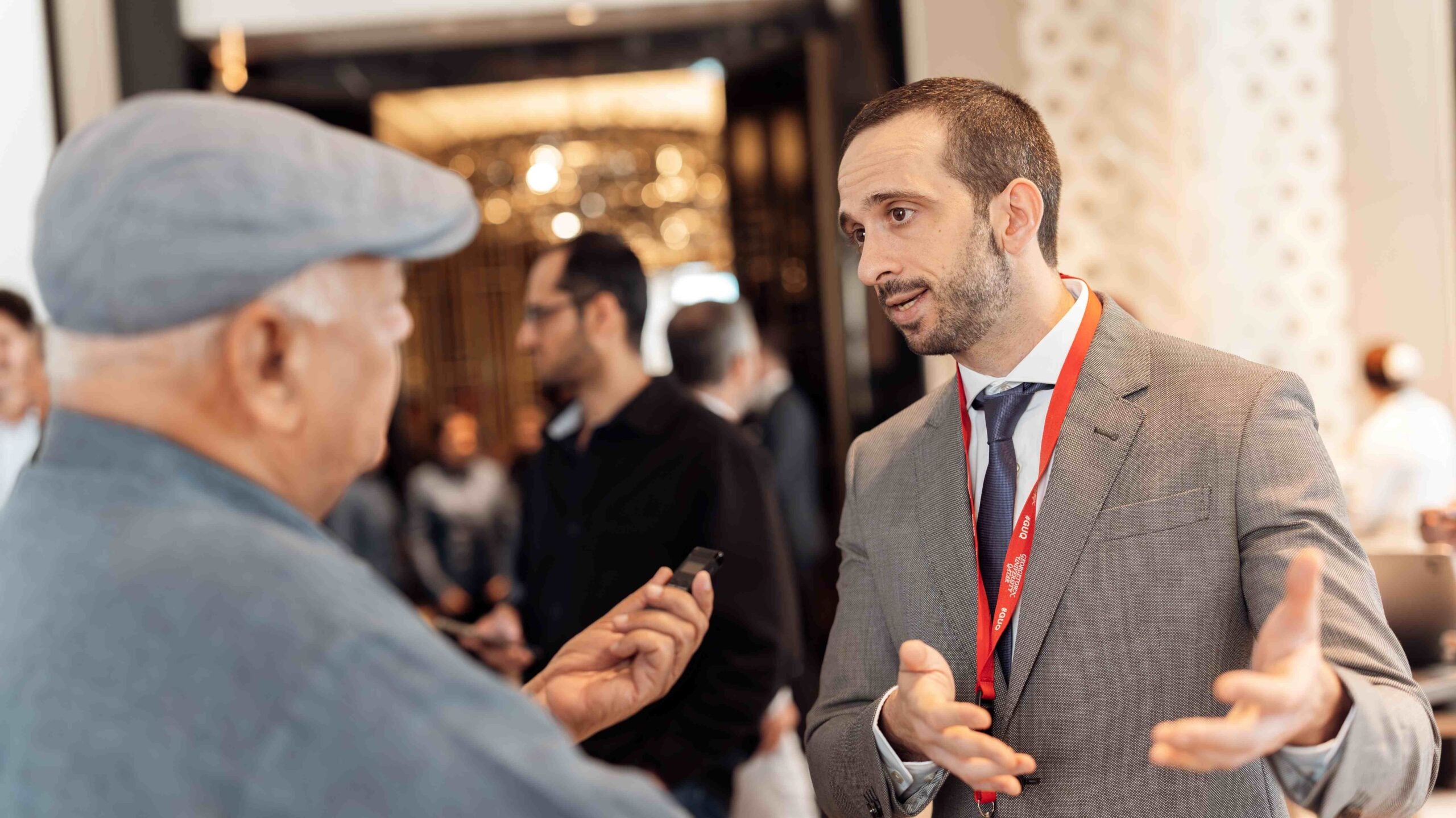
Dr. Santiago García-Couto is an Assistant Professor of Economics at GU-Q. His research interests lie in the areas of macroeconomics and labor economics, with a focus on the impact of tasks on labor market outcomes, determinants of student choice and influence on human capital accumulation, and sources of gender gaps in the labor market. He holds a PhD in Economics from Arizona State University.
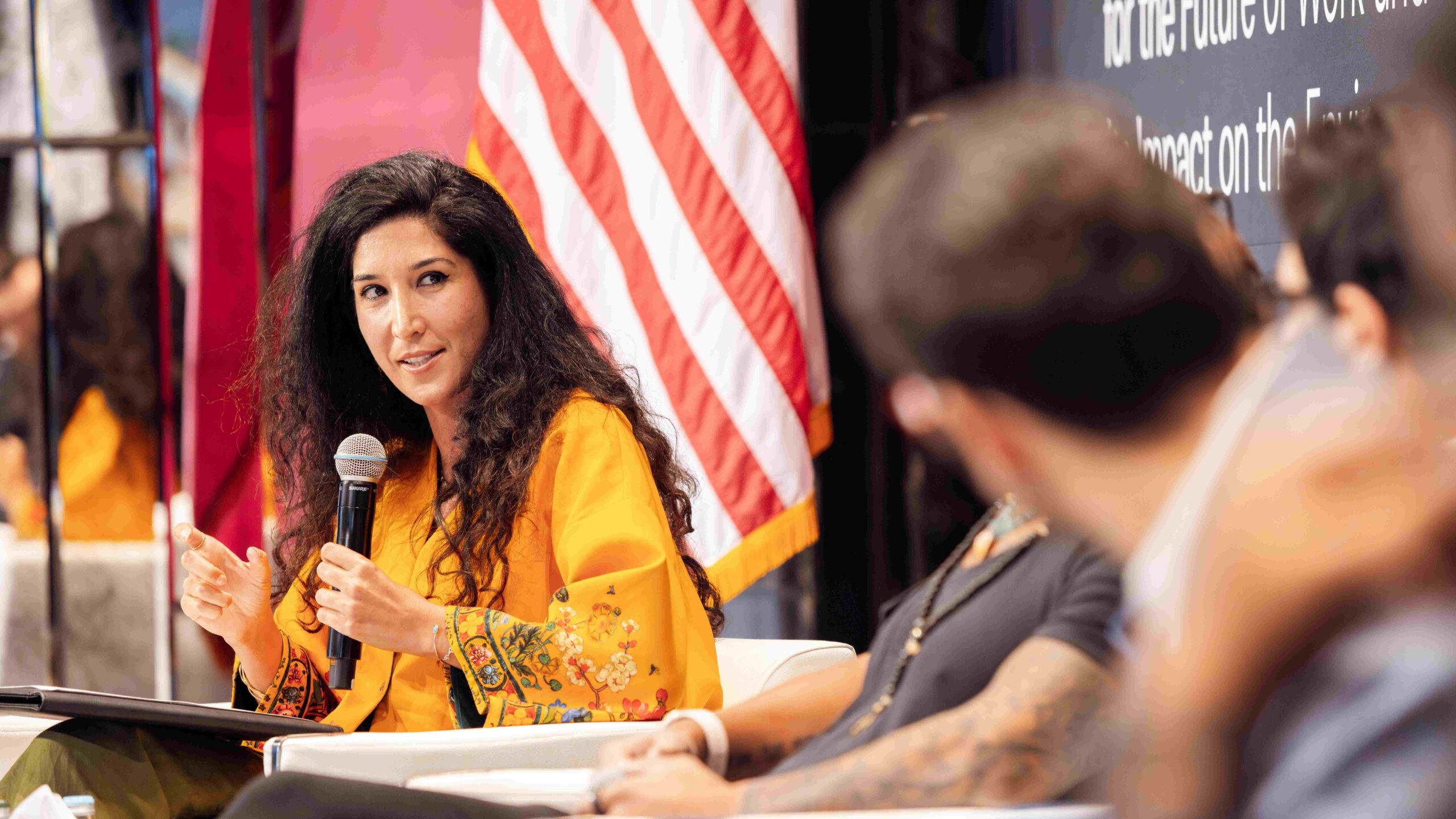
Dr. Raha Hakimdavar is a Senior Advisor to the Deans of Georgetown University in Qatar and Georgetown University’s Earth Commons Institute, Adjunct Professor at Georgetown, a Non-resident Fellow at the Middle East Institute, and the CEO of Zyon Space, a tech startup developing climate adaptation solutions that merge satellite data with AI optimized models. She holds a PhD in Hydrology from Columbia University.
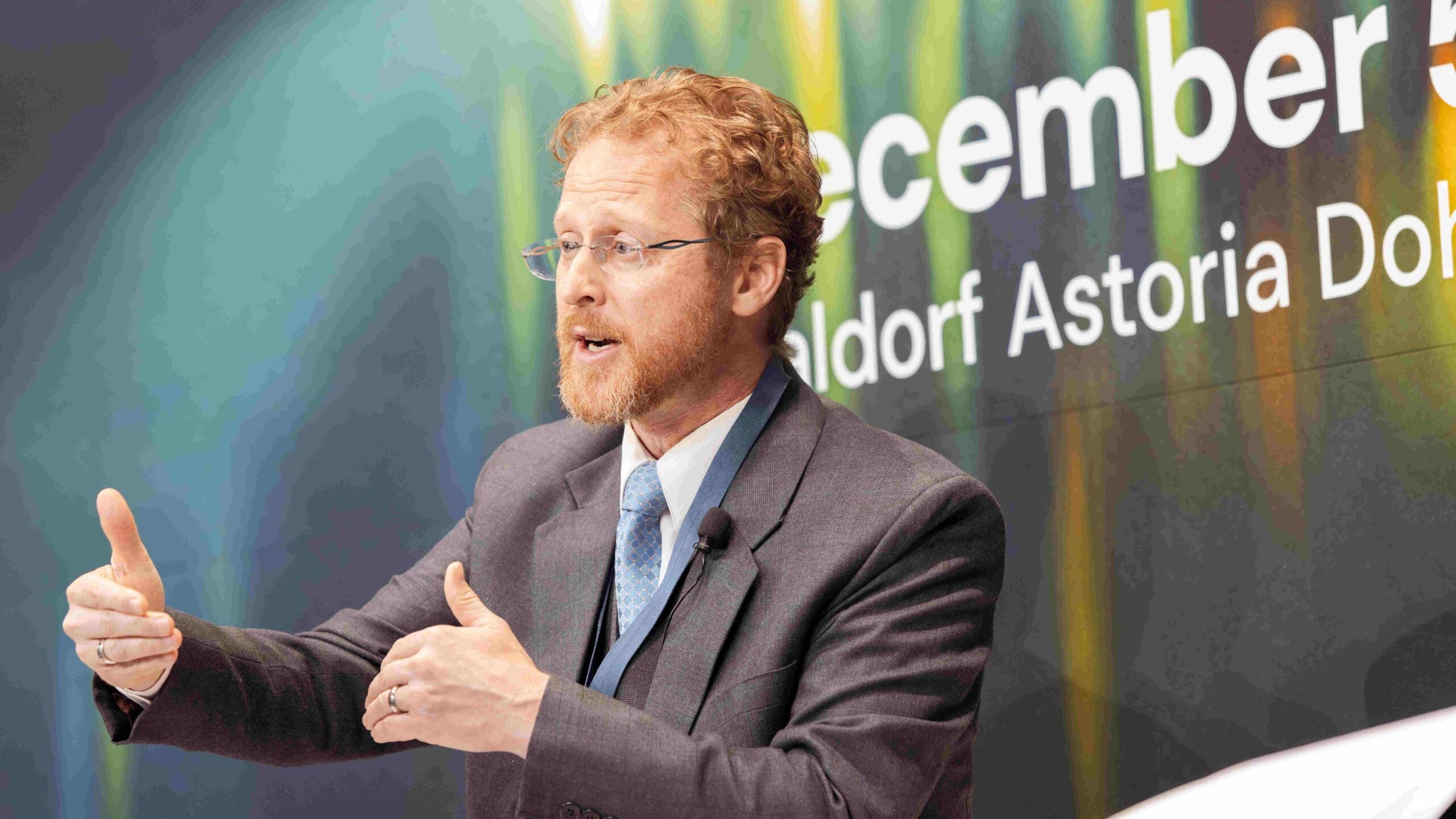
Dr. James Olsen is Associate Director for Pedagogy and Innovation at GU-Q, where has spent much of the past two years focused on the impact, dangers, and possibilities for higher education posed by artificial intelligence. He holds a PhD in Philosophy from Georgetown University, specializing in the intersection of phenomenology and philosophy of perception with a focus on environmental philosophy.
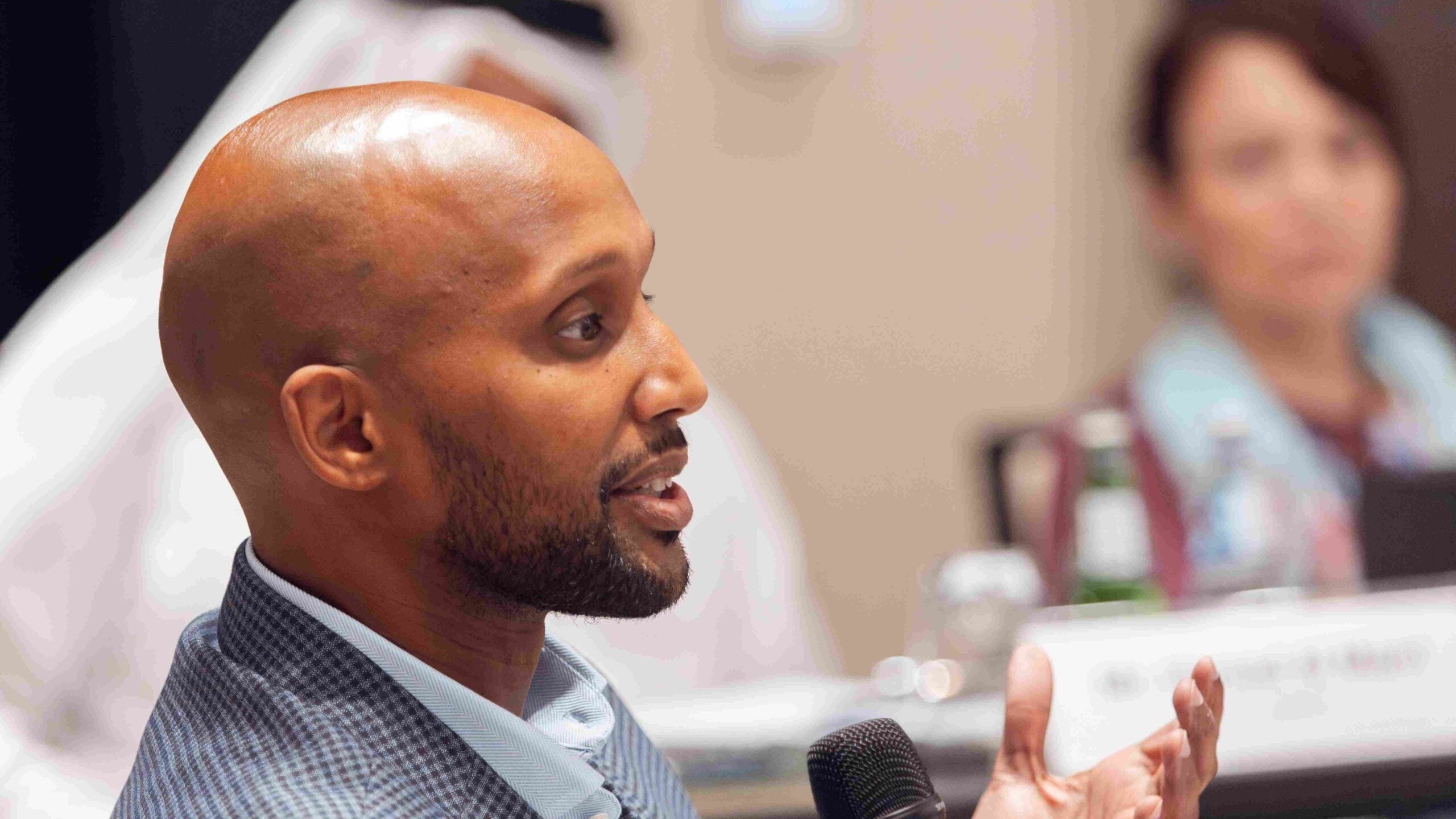
Dr. Mohamoud Adam is Director for Student Academic Success at GU-Q, where he also teaches courses on higher education, experiential learning, and the future of learning. He holds an EdD from the University of Calgary, and his research interests include student engagement, first-year transition, future of work, and educational leadership.
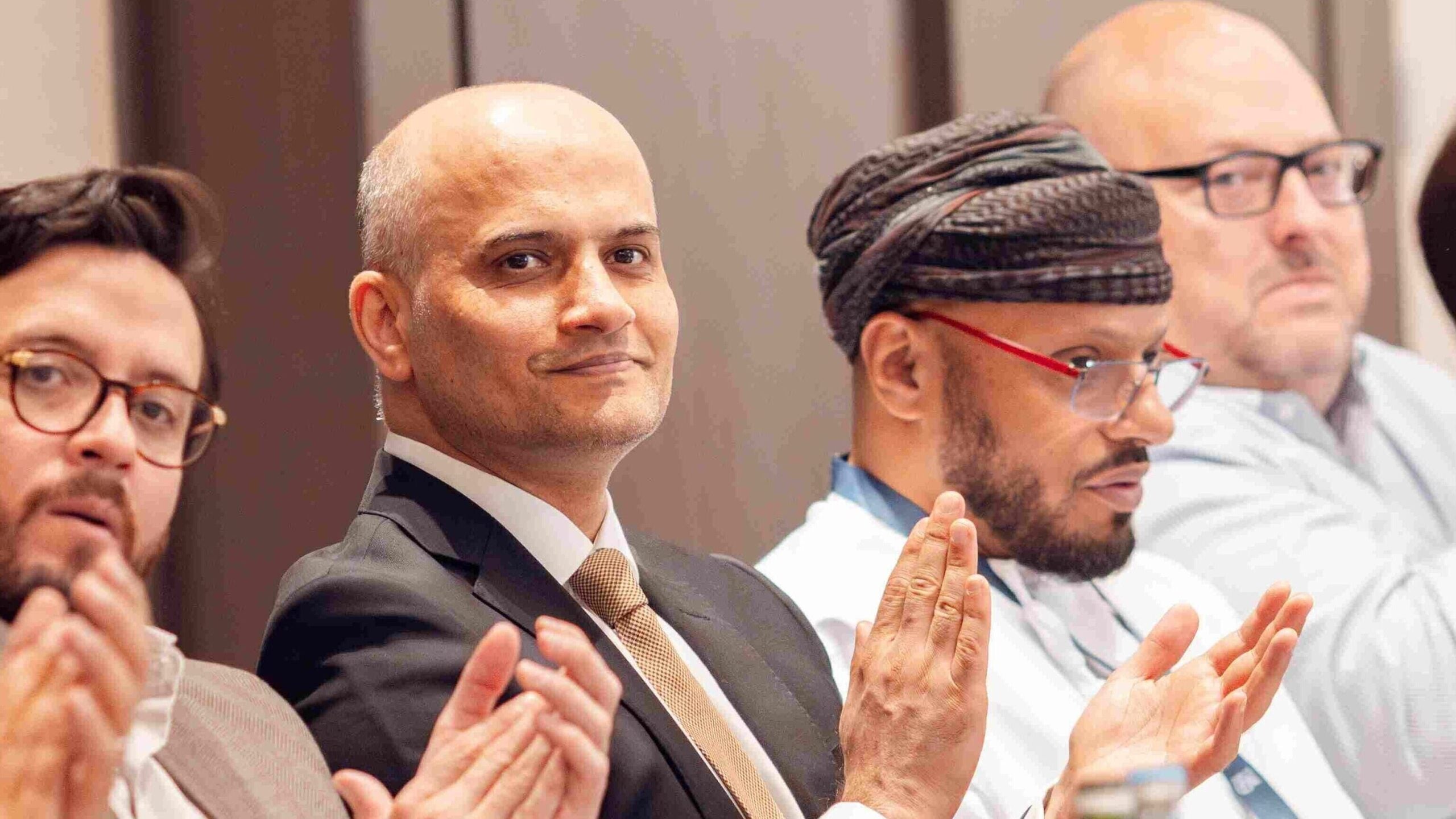
Farukh Zeeshan is Chief Information Officer at GU-Q, where he oversees the university’s IT operations, ensuring seamless integration of innovative and emerging technologies to support academic excellence and operational efficiency. Farukh plays a key role in driving digital transformation, enhancing cybersecurity, and fostering a robust IT infrastructure to meet the evolving needs of the GU-Q community.
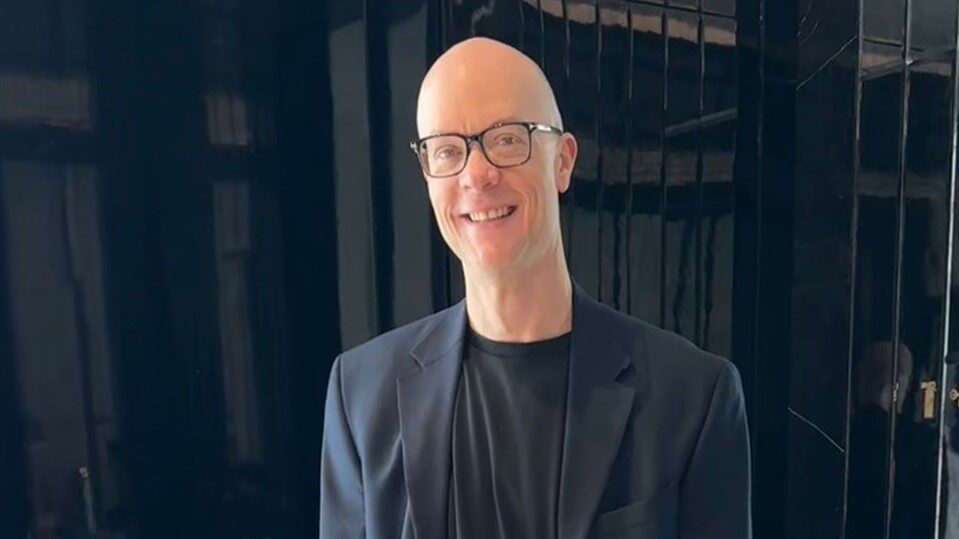
Robert Laws is Data, Web, and Media Services Librarian and Adjunct Professor at GU-Q. He has been teaching courses on human-AI interaction, data visualization, and politics of Artificial Intelligence, and runs the GU-Q Innovation Lab.
